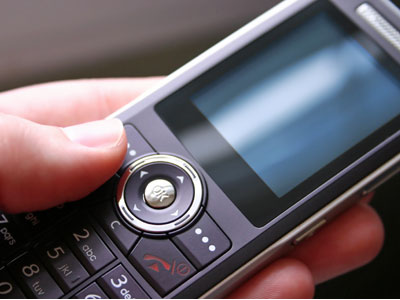 The United States Supreme Court Will Rule on This Matter
The United States Supreme Court Will Rule on This Matter
The United States Supreme Court recently agreed to hear a case regarding whether a police officer can search the cell phone of an individual under arrest without obtaining a search warrant. Today cell phones contain an enormous amount of information about an individual. The legal issue presented to the Justices of the United States Supreme Court is whether the information obtained from a warrantless search of an individual who is under arrest’s cell phone is an unreasonable search in violation of the individual’s fourth amendment rights to the US Constitution. Prosecutors throughout the entire country are paying attention to two cases the Supreme Court has before it dealing with warrantless cell phone searches. The technological advances made regarding the amount of personal information stored on cell phones will have a significant impact on American’s lives and the ability of law enforcement agencies to obtain personal information from cell phones.
Searches of Individuals Under Arrest
Police officers can search an individual and the area around him without a search warrant at the time of an arrest. This is to ascertain the individual is not armed and does not have weapons near him or her that could be used to injure the police officers. The police also can secure evidence maintained on the defendant related to the reasons for his or her arrest.
The first case before the Supreme Court involves an individual by the name of David Riley. Mr. Riley was convicted in California of three charges relating to a situation in San Diego in which gun shots were fired at a car. The prosecutors were able to produce evidence from a photograph on his cell phone that showed him standing in front of a car similar to the one that was at the crime scene.
In the second case before the United States Supreme Court the Federal Government is appealing an Appeals Court decision that tossed out three drug and fire arm charges against Brima Wourrie. Wourrie had been convicted by a jury in Massachusetts. The U.S. Circuit Court of Appeals said in a ruling in May, that police officers could not search Wourrie’s phone without a warrant.
The United State Supreme Court is expected to hear oral arguments on both cases in April of this year.
Opinion of the Writer
The United States Supreme Court should not allow warrantless searches of cell phones. Cell phones are mini computers today that maintain enormous amounts of personal information. The technology that allows ever expanding amounts of information to be maintained on smartphones should be protected under the Fourth Amendment to the United States Constitution which bars unreasonable searches without warrants.
 The Law Offices of Schlissel DeCorpo are composed of five attorneys. The attorneys represent individuals charged with crimes throughout the Metropolitan New York area. The firm has extensive experience in representing individuals charged with misdemeanors and felonies. The criminal defense lawyers at the Law Offices of Schlissel DeCorpo are available to deal with criminal matters seven days a week.
The Law Offices of Schlissel DeCorpo are composed of five attorneys. The attorneys represent individuals charged with crimes throughout the Metropolitan New York area. The firm has extensive experience in representing individuals charged with misdemeanors and felonies. The criminal defense lawyers at the Law Offices of Schlissel DeCorpo are available to deal with criminal matters seven days a week.












